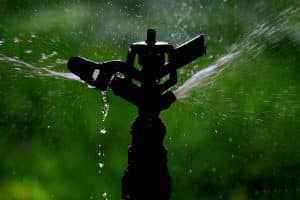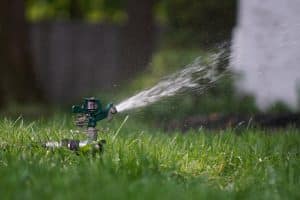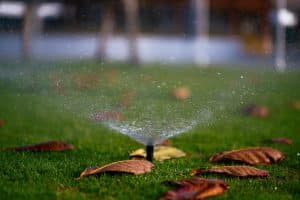Creating a beautiful garden isn’t just about aesthetics; it’s also an opportunity to embrace sustainable practices that benefit both your outdoor oasis and the environment. At Utah Sprinkler Company, we believe in the power of eco-friendly gardening, particularly when it comes to irrigation. In this guide, we’ll explore sustainable irrigation practices that can help you conserve water, reduce waste, and promote a greener, healthier garden.
Gardens are a haven of natural beauty, and by adopting eco-friendly practices, we can ensure they thrive while also minimizing our impact on the environment.
The Importance of Sustainable Irrigation
Irrigation is a critical aspect of gardening, and sustainable irrigation practices offer several advantages:
- Water Conservation: Reduce water waste and save on utility bills by using water efficiently.
- Healthier Plants: Consistent and adequate watering promotes plant health and growth.
- Environmental Stewardship: Minimize the environmental impact by using water responsibly.
- Cost Savings: Sustainable practices can lead to long-term cost savings.
Water-Wise Plant Selection
Start by selecting plants that are well-suited to your local climate:
- Native Plants: Choose native species adapted to your region’s rainfall patterns.
- Drought-Tolerant Varieties: Opt for plants that require less water to thrive.
- Group Plants by Water Needs: Organize your garden so that plants with similar water requirements are together.
Efficient Irrigation Techniques
Efficiency is key in sustainable irrigation:
- Timing: Water during the early morning or late evening to minimize evaporation.
- Avoid Overwatering: Ensure your system delivers the right amount of water without excessive runoff.
- Check for Leaks: Regularly inspect your irrigation system for leaks or damaged components.
Drip Irrigation: A Sustainable Solution
Drip irrigation is a highly efficient and eco-friendly method:
- Direct Watering: Drip systems deliver water directly to the root zone, minimizing waste.
- Low Pressure: They operate at low pressure, reducing the risk of leaks.
- Slow and Steady: Drip irrigation releases water slowly, allowing it to penetrate deeply into the soil.
Rainwater Harvesting
Capture and use rainwater for irrigation:
- Rain Barrels: Install rain barrels to collect rainwater from your roof.
- Storage Tanks: Larger tanks can store substantial rainwater for extended use.
- Eco-Friendly and Free: Rainwater is free and contains no chemicals, making it ideal for plants.
Smart Controllers for Smart Watering
Invest in a smart irrigation controller:
- Weather-Based Scheduling: These controllers adjust watering based on local weather conditions.
- Remote Control: Control your irrigation system from anywhere using a smartphone app.
- Water Use Reports: Monitor your water usage and make adjustments for greater efficiency.
Mulching for Moisture Retention
Mulch offers multiple benefits:
- Moisture Retention: Mulch reduces soil moisture evaporation.
- Weed Suppression: It helps control weed growth, reducing the need for manual weeding.
- Soil Health: As mulch breaks down, it enriches the soil with organic matter.
Regular Maintenance and Audits
Sustainably irrigated gardens require regular care:
- Scheduled Audits: Conduct routine audits to check for leaks, clogs, or inefficient sprinkler heads.
- Pruning and Thinning: Maintain plant health by pruning and thinning as needed.
- System Updates: Keep your irrigation system and controllers up-to-date for optimal performance.
Conclusion
An eco-friendly garden isn’t just a beautiful space; it’s a testament to responsible gardening. By adopting sustainable irrigation practices, you can conserve water, promote plant health, and contribute to a greener world. At Utah Sprinkler Company, we’re here to assist you in making your garden eco-friendly and thriving. For expert guidance and services, visit our website here or call us at 801-692-7315. Let’s create a garden that’s both sustainable and stunning.




